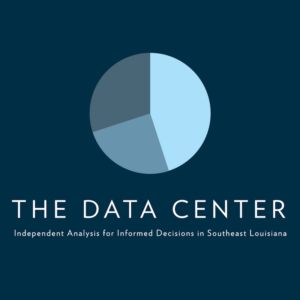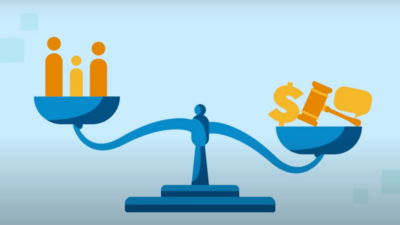In Brief
In 2018, the W.K. Kellogg Foundation and Altarum released a report that concluded that New Orleans is poised for significant economic growth if its workforces are upskilled and better educated as part of a collaborative effort to eliminate racial disparities in employment, health, education and incarceration.
The report, called the “The Business Case for Racial Equity: A Strategy for Growth,” analyzed the city’s economy, providing blueprints for boosting it and improving the quality of life for all its residents. The study found that by 2050, Metro New Orleans can realize a $43 billion gain in economic output by closing the racial equity gap. This includes more than $5.5 billion in additional consumer purchasing power.
The Data Center, which was a local partner in the research of the Business Case for Racial Equity, just this month released the first in a series of academic briefs on systemic inequity in New Orleans. These papers, which will publish over the year, are a roadmap of how the city can get to the aspirational vision laid out in the Business Case for Racial Equity.
Why This Matters
The first paper, titled New Orleans and the Hollow Prize Problem: Structural Limits on Black Political Power, looks at when cities like New Orleans were first electing Black mayors, and many working-class residents were seeking help on critical needs such as housing and employment. But just as Black mayors were entering office, city governments were losing the revenue and influence necessary to act on these mandates.
This was the standard state of affairs that many Black mayors faced as they took office, which constrained their efforts to provide upward mobility to its residents.
This report examines the history of declining city tax revenues in New Orleans through the 1980s, the relevant interventions prioritized by New Orleans’ mayors beginning with its first Black mayor, Ernest ‘Dutch’ Morial, and the challenges facing current Mayor LaToya Cantrell as she attempts to address the effects of multiple, compounding crises for low-income residents.
The Opportunity
These briefs from The Data Center, with its recommendations and realistic solutions, provide a roadmap to achieving the racial equity and economic prosperity laid out in the Business Case for Racial Equity.
This first brief recommends prioritizing new federal funding streams to meet the needs of the most vulnerable, working to create a regional taxing district and redrawing state legislative districts such that they unite suburban and urban residents whose demands are increasingly similar.









Comments